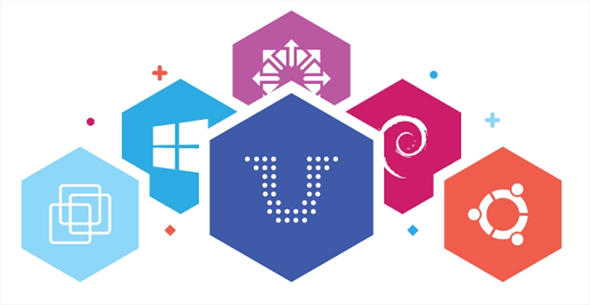What is Ubuntu?
Have you ever considered using operating systems other than Windows and Mac? Considering these two operating systems are very popular and widely used, it may seem impossible to imagine a world without them. But it is not! Another operating system that may be less well-known is Linux. Linux is a versatile operating system (OS) with different distributions, and Ubuntu is one of its distributions.
This article is about Ubuntu Linux training. We want to discuss its capabilities and advantages, and learn about its disadvantages. If you plan to migrate to Linux, after reading this article, you will have a much more open mind when deciding.
Before going to Ubuntu, it is better to familiarize ourselves with operating systems and Linux to understand the article better.
What is the operating system?
The operating system (OS) is a software component that manages hardware, software, and system resources. It also adds a user interface so users can easily interact with the needed parts.
What is Linux?
Linux is an operating system like Mac and Windows. However, the difference is that Linux is an open-source operating system. Linux has many different distributions or versions, each optimized for a specific task.
In the article about the types of Linux distributions, you can learn about other distributions, such as Mint, Arch Linux, Debian, etc., and their uses.

What is Ubuntu?
Ubuntu is a free and open-source Linux distribution used by millions of users. Its open-source status means that users can edit its code, install as many copies as they want, and distribute the program as they wish.
Windows and Mac, with their greatness, do not have such a feature!
In addition, users who download and install Ubuntu do not have to pay for it. And can use its features for
If you have also wondered why this distribution is free, we must tell you that Windows and Mac benefit from selling these operating systems. Still, Ubuntu’s primary purpose (and that of Linux in general) is to bring humanity to the computing world. Its proponents believe this software should be freely available regardless of income, ability, or language.
It is interesting to know that Ubuntu is an ancient African word that means ” humanity for others “.
The rest of the article will discuss the features and benefits of this operating system in more detail.
What features does the Ubuntu operating system have?
The things you read below are the basic needs of every person using any operating system. Still, we mention them because Linux means the absence of many common daily services. For example, Photoshop or any software from Adobe is unavailable on any Linux distribution. Using a virtual machine. Of course, it doesn’t work, and you can install Adobe on Linux.
Anyway, what you will read below are the features that you will enjoy using Ubuntu:
Office software
Microsoft Office is one of those softwares that don’t run on Linux; But in the Ubuntu distribution, there is a software called LibreOffice that works the same as Office. Therefore, if in any way you are stuck with software like Word, PowerPoint, Excel, etc., there is no need to worry. You can use and enjoy Ubuntu without any problems.
Thunderbird, Mozilla’s famous email program, is available in Ubuntu. Users of this distribution can access their emails on their desktops.
browser
One of the most expected requirements of any operating system is a browser. Security is one of the most important features of Ubuntu, just like the Firefox browser. Fortunately, Ubuntu has supported Chrome and other popular browsers for some time.
Pictures
Of course, an operating system cannot be imagined without the ability to play images and photos. Ubuntu also has many free programs for viewing and editing photos.
the movie
Many people only use the computer to watch movies, and it is unlikely that you belong to this category. If you expect this from your system, you will not need Linux, especially Ubuntu. However, that doesn’t mean watching movies on Ubuntu is impossible!
Users can watch HD movies in their browsers or with Movie Player, VLC, or OpenShot by default. They can also edit videos using programs like Shotcut and Kdenlive.
Play
Ubuntu is not for gaming, but it supports some games, from Dota 2 to BioShock. These are games in different genres that can entertain anyone for hours.
A whole world of all kinds of programs
Just as Ubuntu is free to download, thousands of programs are also available with just a few clicks and without paying the slightest fee.
These are the features that can be expected from Ubuntu. Let’s get acquainted with its positive points.
What are the advantages of Ubuntu?
As mentioned above, Ubuntu is a free and open-source operating system. This distribution is built for desktop and server environments and can be used on PCs, server platforms, cloud services, and the Internet of Things. Among the most important advantages of Ubuntu, the following can be mentioned:

1- Suitable for personal and organizational calculations
One of Ubuntu’s most important advantages is that it is free and open source. Individuals and organizations can use it on their devices without paying for a license. Note that in other countries, using Windows and Mac without buying a legal license will result in heavy fines. Therefore, Ubuntu is a very good option for those who do not like to spend money.
2- Compatibility with a wide range of computing devices or platforms
This distribution can be installed on various devices, including Windows and Mac computers and laptops. Devices and robots. Also, Ubuntu can be implemented in network servers, IoT, and simulated or virtual computing environments.
3- A worthy competitor for Windows and Mac
When comparing capabilities, you should compare Linux, specifically the Ubuntu distribution, with its competitors, Windows and Mac. The result of this comparison shows that Ubuntu does not lack anything. Considering that many programs and software such as Google Chrome, Opera, Spotify, etc. can be used in this distribution, it can be said that Ubuntu is a strong and tough competitor for the other two giants.
4- User-friendliness and ease of use
Working with this distribution is so easy that even people with basic computer knowledge can install and use it on their computer. Ubuntu is much more user-friendly than Windows and Mac, which is one of the advantages of this distribution. One of the features available to Ubuntu users is the possibility of fully personalizing the desktop environment. This feature is much more limited in Windows and Mac.
5- No need for powerful hardware
Ubuntu is on a System with a 700 MHz processor, 512 MB of storage space, and 5 GB of RAM, and it is easy to install and use. Also, it is interesting to note that this distribution can be run directly from external storage devices such as USB and DVD.
6- Continuous support of developers
You might think that since there is no organization behind Ubuntu (because it is open source), there is no development and support. Well, you are wrong! There is an active community of users who can help each other fix the defects and problems. The development team also provides long-term support to its users.
7- High security
It has been said for a long time that viruses are created by the same companies that make antiviruses to make millions of dollars. We don’t care how true this is. As for Ubuntu, there is no antivirus! Nevertheless, this distribution provides high security to its users.
Of course, it is better to be careful so you don’t get into a special problem.
Suggested Reading: Read the article Types of Cyber Attacks to learn about different hacking techniques.
8- Having a software repository
Installing many software from Ubuntu repositories with a few clicks has many advantages. In addition to the fact that this software is free and more secure than EXE packages, installing programs from a centralized location is much easier.
But Ubuntu is not perfect!
What are the disadvantages of Ubuntu?
Everything in this world has its advantages and disadvantages; Ubuntu is no exception to this rule, and along with its very good advantages, it also has some shortcomings. Below are some of the most important disadvantages of this distribution:
- Although this distribution has many programs, its number still does not reach the programs available in Windows and Mac! This limitation reduces its functional area.
- This distribution is not suitable for gamers at all. If you are a gamer and like to experience high quality while playing, Windows is a more suitable option than Mac and Ubuntu.
- In some cases, software and hardware incompatibility problems have been observed.
- Some experienced users believe that Ubuntu is not the best Linux distribution and that other better options exist.
- The open-source nature of this distribution has made its commercialization difficult.
We discussed almost everything about this famous Linux distribution. If you want to download Ubuntu, we recommend that you go to the main Ubuntu site to get the latest version.
Eventually
If you’re tired of Windows and Mac for whatever reason, Linux is probably the only option left. To start working with Linux, it is better to use Ubuntu. Ubuntu has an excellent user interface and is one of the most powerful Linux distributions.

